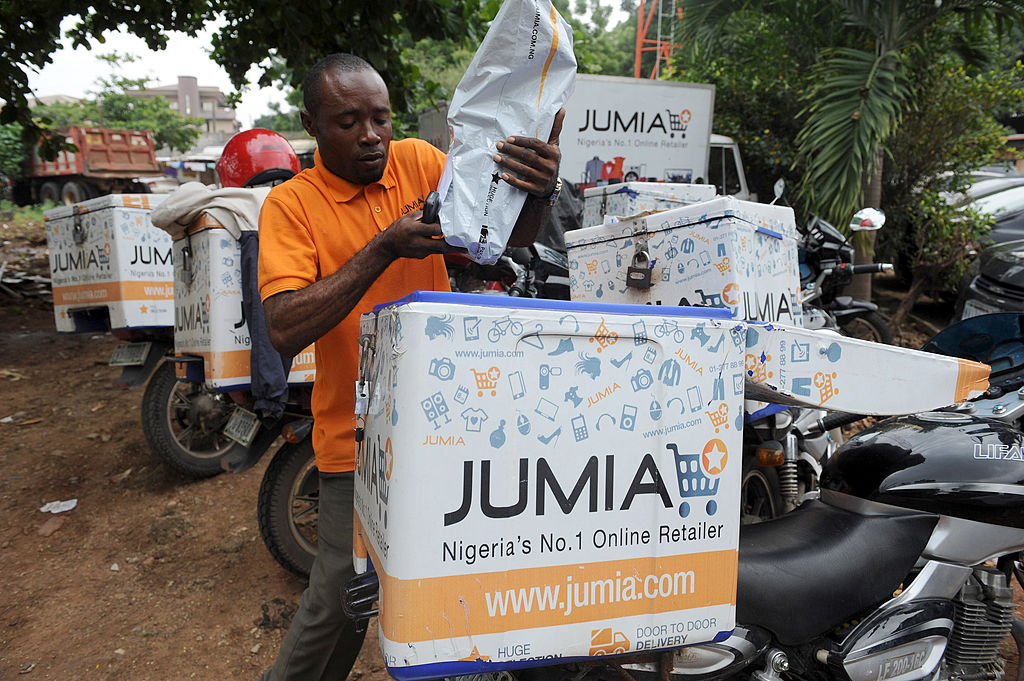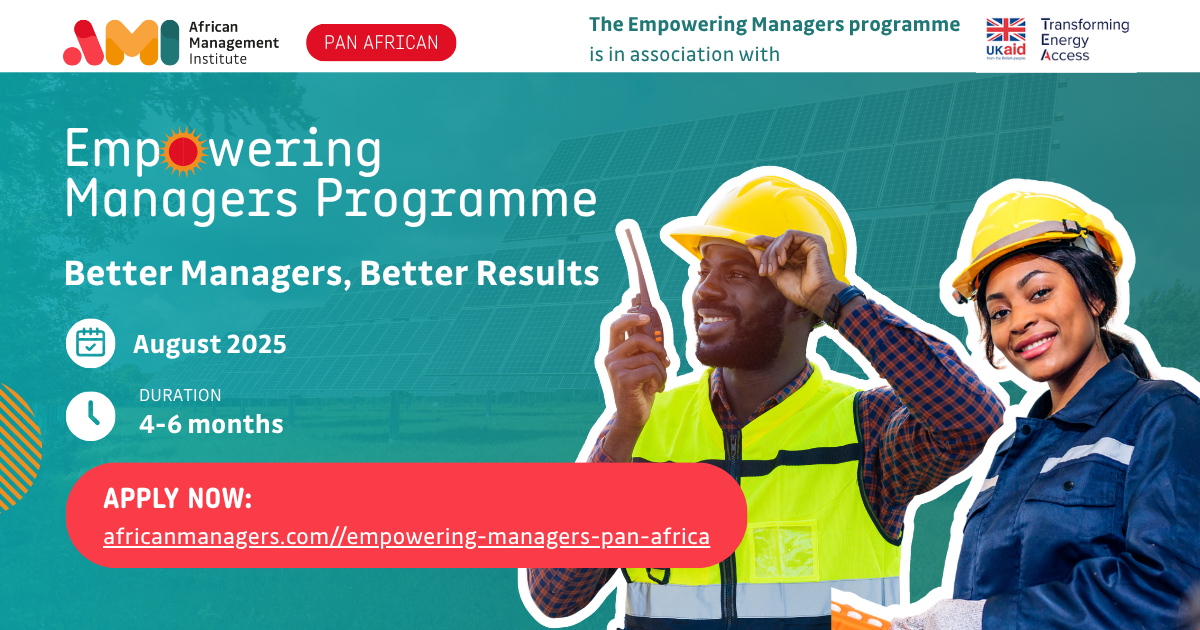

Wazzup. 
Money is calling you. Will you pick up?
Join Zikoko and friends at the Nairalife Conference happening today at The Jewel Aeida in Lekki, Lagos.
Catch some BCM folks at the event (psst… we need to get money-smart too) and say hi when you see us.
Don’t have a ticket yet? No worries—we got you.
Book a last-minute ticket here and don’t miss this for anything in the world.

E-commerce
Jumia’s Q2 earnings spark investor optimism

Jumia’s stock jumped over 23% after posting Q2 results that topped investor expectations, signalling a vote of confidence in the company’s operational turnaround.
The e-commerce giant’s revenue increased 25% year-over-year to $45.6 million, driven by robust consumer demand in Nigeria. Order volumes grew 18%. Operating losses narrowed to $16.5 million, while net cash used in operating activities fell to $12.7 million, buoyed by improved working capital management.
All these metrics hint that the e-commerce company is seeing deeper platform engagement despite retreating from big markets and tightening spending.
Although liquidity fell to $98.3 million, cash burn slowed noticeably, and management raised its outlook for 2025, reiterating targets of breakeven by late 2026 and profitability in 2027.
The company still faces tough questions about cash sustainability, competitive threats from larger entrants like Temu, and its path to consistent, continent-wide growth. However, this rally in the stock price shows the Q2 earnings have reignited optimism in Jumia’s turnaround.
eCommerce Without Borders: Get Paid Faster Worldwide

Whether you sell in Lagos or Nairobi, customers want local ways to pay. Let shoppers check out in their local currency, using cards, bank transfers, or mobile money. Set up seamless payments for your global online store with Fincra today.
Economy
PoS operators in Nigeria processed $7 billion in Q1 2025, a 4x increase from last year

While it’s okay to hold different positions about Point-of-Sale (PoS) operators and their business model built on “using money to buy cash” in Nigeria, you cannot understate the importance they’re playing in the country’s cash economy.
Thanks to a policy frenzy, a failed naira redesign by former Central Bank of Nigeria (CBN) chief Godwin Emefiele, and a resulting cash crunch, the PoS sector never looked back.
PoS operators have become go-to sources for cash for many Nigerians who cannot commit time to visit bank automated teller machines (ATMs) stationed in urban areas.
Between the lines: In Q1 2025, Nigerians transacted ₦10.51 trillion ($7 billion) on PoS terminals, more than four times the amount year-on-year (YoY).
What’s driving the cash pile? Fintechs built dense agent networks across cities and rural areas, aggressively onboarding MSMEs and informal businesses that still rely on cash. Many Nigerians now prefer holding physical cash, keeping money out of the formal banking system.
What does increasing PoS transactions mean for Nigeria’s ambition for a cashless economy? It is crucial to state that not every PoS transaction is cash-tied (some users perform e-transfers at PoS terminals); however, the default use case for PoS machines is to withdraw cash. The heavy transaction processing could mean that, despite efforts, Nigeria might still be far from its cashless economy goals.
Zoom out: While PoS operators now handle big money, it is creating an unintended consequence for them. Some agents face arrests when transactions are later linked to fraud or crime. The CBN, trying to rein in runaway liquidity, imposed daily transaction caps—₦1.2 million ($785) for agents, ₦100,000 ($65) for customers—and mandated cash availability in ATMs. But PoS activity still accounts for a huge chunk of currency in circulation, now mostly outside banks.
Unless fintechs, regulators, and banks collaborate, PoS operators risk becoming scapegoats for deeper structural issues in Nigeria’s cash economy.
Read more in this TechCabal analysis by our senior policy reporter, Temitayo Jaiyeola.
Paga Engine powers the boldest ideas in Africa

You’ve got customers, but do you have the right infrastructure in place? Don’t let outdated systems hold you back. Paga Engine is the fintech backbone built for businesses like yours. Read the full article.
Regulation
Truecaller draws scrutiny in South Africa over data handling

Truecaller, the popular calling app that lets you view the identity of callers on your phone, could come under fire in South Africa over alleged false phone number blacklisting.
Why? South Africa’s Information Regulator says it has received complaints about Truecaller and is investigating whether the caller ID app may have breached the country’s data privacy law, the Protection of Personal Information Act (POPIA).
Some of the complaints come from businesses that claim Truecaller labels their numbers as spam and then charges a steep monthly fee—$590 for 5,000 calls—to whitelist them and ensure calls reach customers.
Between the lines: The regulator hasn’t taken any enforcement action yet, but the probe focuses on how Truecaller collects and uses personal information. A major concern is the app’s feature that pulls entire contact lists from users’ phones, including numbers of people who have never signed up for Truecaller. This practice could reportedly violate POPIA, which requires clear legal grounds and consent for processing personal data.
What this means: If the regulator finds Truecaller in violation, the app could face fines up to R10 million ($564,000), be required to change its data collection practices, or be restricted from processing South African data. Similar enforcement actions have already hit several state departments in the past, including the Department of Justice in 2023 and the Department of Basic Education in 2024, over POPIA violations.
Why it matters: Truecaller is widely used to block spam and screen calls. Any regulatory clampdown could limit its core features, affecting both everyday users and businesses that rely on phone outreach. On the flip side, it may also lead to better privacy controls for people who never agreed to be part of the system.
Zoom out: This investigation could mark a turning point in how South Africa deals with global tech firms. The Information Regulator has signalled it is willing to act—and if this case sets a strong precedent, others, especially South Africa’s longstanding privacy battle with WhatsApp, will likely follow.
Accept in-person payments with Paystack Virtual Terminal!

Anyone can sell in-person. With Paystack Virtual Terminal, you can accept secure payments anywhere using just a QR code. No hardware needed. Learn more here →
Features
Kenya’s alcohol ban could sober up e-commerce and gig work

Kenya is weighing a sweeping new alcohol control bill that could ban online alcohol sales, home deliveries, and promotions by influencers—threatening to upend the business models of e-commerce platforms, supermarkets, restaurants, and thousands of boda boda riders. The proposal, led by NACADA, aims to curb underage and binge drinking by raising the legal drinking age to 21 and creating dry zones near schools and churches.
It also proposes a blanket ban on using celebrities, influencers, or media personalities to advertise or promote alcohol online.
But the backlash is growing. Since COVID-19, online sales and doorstep deliveries have become central to how alcohol is sold, especially by small retailers and supermarkets like Carrefour and Naivas. Many rely on social media, WhatsApp orders, and local delivery riders to reach customers.
If implemented, the new rules could force hundreds of small liquor shops, bars, and restaurants to scale down or shut altogether. Many of these businesses rely heavily on social media and phone-based orders, with deliveries handled by boda boda riders and gig workers.
The public still has a chance to submit feedback before the bill becomes law. But if passed in its current form, it could disrupt an entire ecosystem of small traders, tech platforms, and informal workers who have built livelihoods around the convenience of online alcohol sales.
Train your managers and leadership team to get better results

Beyond technical skills, energy companies need great leadership to thrive. 100s of firms like AFSIA, PowerGen & Solar Panda have lowered costs & grown revenue through AMI’s Empowering Managers Programme, supported by UK Aid. Join now from just $250.
CRYPTO TRACKER
The World Wide Web3
Source:

|
Coin Name |
Current Value |
Day |
Month |
|---|---|---|---|
| $116,710 |
+ 2.05% |
+ 7.47% |
|
| $3,912 |
+ 6.71% |
+ 49.88% |
|
| $3.34 |
+ 12.35% |
+ 44.00% |
|
| $174.46 |
+ 4.37% |
+ 15.15% |
* Data as of 06.30 AM WAT, August 8, 2025.
Job Openings
- Palmpay — Lead, User Growth — Lagos, Nigeria
- Chow Noodle Bar — Digital Marketer — Lagos, Nigeria
- Cowrywise — Growth Marketer – Organic Social — Hybrid (Lagos, Nigeria)
- Flourish Health — Crypto Marketing — Lagos, Nigeria
- Bave Design Studio — Creative Director — Remote (Lagos, Nigeria)
There are more jobs on TechCabal’s job board. If you have job opportunities to share, please submit them at bit.ly/tcxjobs.

Written by: Ngozi Chukwu, Emmanuel Nwosu, and Adonijah Ndege
Edited by: Faith Omoniyi
Want more of TechCabal?
Sign up for our insightful newsletters on the business and economy of tech in Africa.
- The Next Wave: futuristic analysis of the business of tech in Africa.
- TC Scoops: breaking news from TechCabal
- TNW: Francophone Africa: insider insights and analysis of Francophone’s tech ecosystem
P:S If you’re often missing TC Daily in your inbox, check your Promotions folder and move any edition of TC Daily from “Promotions” to your “Main” or “Primary” folder and TC Daily will always come to you.

from TechCabal https://ift.tt/bgvQXdL
via IFTTT




Write your views on this post and share it. ConversionConversion EmoticonEmoticon